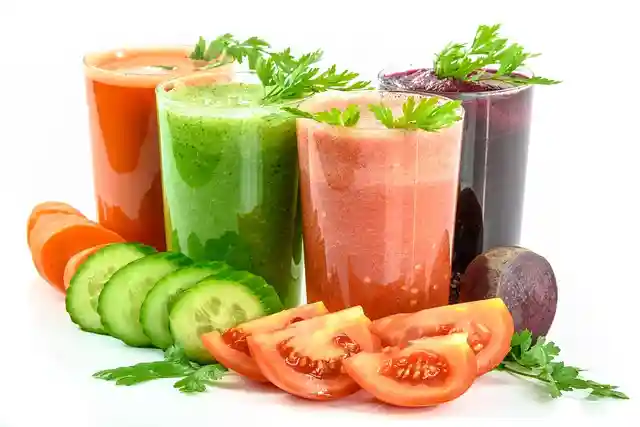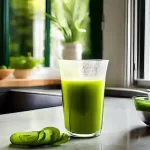Juice Cleanse: The Ultimate Guide to a Healthier, More Energized You
In recent years, the trend of juice cleansing has become increasingly popular as a way to promote overall health and wellness. A juice cleanse involves consuming only fruit and vegetable juices for a short period of time, typically one to three days, with the goal of detoxifying the body and rejuvenating the mind. In this comprehensive guide, we will explore the different types of juice cleanses, the benefits of juicing, and the best practices for a successful juice cleanse.
What is a Juice Cleanse?
A juice cleanse, also known as a juice detox or juice fasting, is a type of diet that involves consuming only fruit and vegetable juices for a specified period of time. The purpose of a juice cleanse is to flush out toxins from the body, boost the immune system, and provide the body with essential nutrients. Juice cleanses can range from one day to several weeks, and can be customized to meet individual needs and preferences.
Types of Juice Cleanses
There are several different types of juice cleanses, each with their own unique benefits and characteristics. Here are some of the most common juice cleanses:
- Green Juice Cleanse: This type of juice cleanse is focused on consuming green, leafy vegetables, such as spinach, kale, and lettuce, in order to provide the body with alkaline-forming nutrients.
- Fruit Juice Cleanse: As the name suggests, this type of juice cleanse is centered around consuming fruit juices, such as apple, orange, and pomegranate, to provide the body with a boost of natural sugars and antioxidants.
- Vegetable Juice Cleanse: A vegetable juice cleanse is designed to provide the body with a variety of essential vitamins and minerals, such as vitamins A and C, and iron.
- Cold-Pressed Juice Cleanse: Cold-pressed juices are made using a special process that preserves the nutrients and enzymes in the juice, making them a great option for a juice cleanse.
Cold-pressed juices are made using a special process that involves using a hydraulic press to extract juice from fruits and vegetables, preserving the nutrients and enzymes in the juice. This process is different from traditional juicing methods, which can heat up the juice and destroy some of the beneficial nutrients and enzymes.
Cold-pressed juices are considered to be superior to traditional juices because they retain more of the beneficial nutrients and enzymes, making them a great option for a juice cleanse. In addition, cold-pressed juices are often made using a wider variety of fruits and vegetables, providing the body with a greater range of nutrients and antioxidants.
It’s important to note that not all cold-pressed juices are created equal, and it’s important to look for cold-pressed juices that are made with high-quality, organic ingredients. Additionally, it’s important to be mindful of the sugar content in cold-pressed juices, as some can be high in sugar, even though they are made with natural ingredients. Cold-pressed juices are a great option for a juice cleanse because they retain more of the beneficial nutrients and enzymes, making them a more nutritious and effective option for promoting overall health and wellness. When selecting cold-pressed juices, it’s important to look for high-quality, organic ingredients and to be mindful of the sugar content in the juices.
Benefits of Juice Cleansing
Juice cleansing has a variety of benefits for the body, including:
- Detoxification: By consuming only fruit and vegetable juices, the body is able to eliminate toxins and impurities more efficiently.
- Weight Loss: Juice cleanses can be an effective way to lose weight, as they are low in calories and high in fiber.
- Immune System Boost: The high levels of vitamins, minerals, and antioxidants in juice can help to strengthen the immune system and fight off illness.
- Rejuvenation: Juice cleanses can help to reduce stress and promote a sense of overall well-being.
- Energy Boost: By consuming nutrient-dense juices, the body is able to obtain the energy it needs to function at its best.
- Improved Digestion: Juice cleanses can help to improve digestion by giving the digestive system a break and allowing it to rest and heal. This can help to reduce symptoms of digestive issues, such as bloating and constipation.
- Clearer Skin: The high levels of antioxidants and vitamins in juice can help to clear up skin, reducing the appearance of blemishes and improving skin tone and texture.
- Increased Mental Clarity: By reducing stress and providing the body with essential nutrients, juice cleanses can help to increase mental clarity and improve cognitive function.
- Better Sleep: The reduced stress and increased energy levels associated with juice cleanses can help to improve sleep, leading to a more restful and rejuvenating sleep experience.
- Increased Energy Levels: By consuming nutrient-dense juices, the body is able to obtain the energy it needs to function at its best, leading to increased energy levels and improved overall performance.
It’s important to note that while juice cleanses can be beneficial, they should not be used as a long-term solution for overall health. Instead, they should be seen as a way to give the body a temporary boost and promote overall wellness. Additionally, it’s important to consult with a healthcare professional before starting a juice cleanse, especially if you have any underlying health conditions.
Tips for a Successful Juice Cleanse
To ensure a successful juice cleanse, it’s important to follow these best practices:
- Plan ahead: Before starting a juice cleanse, it’s important to plan out the juices you will be consuming and to have all of the necessary ingredients on hand.
- Start slowly: If you’re new to juice cleansing, it’s best to start with a one-day cleanse and gradually work your way up to a longer cleanse.
- Stay hydrated: In addition to drinking juice, it’s important to drink plenty of water to stay hydrated and flush out toxins from the body.
- Listen to your body: If you feel hungry or fatigued during a juice cleanse, it’s important to listen to your body and take a break if necessary.
- Avoid caffeine and alcohol: Caffeine and alcohol can dehydrate the body and interfere with the detoxification process, so it’s best to avoid them during a juice cleanse.
- Incorporate solid foods: While the focus of a juice cleanse is on consuming juices, it’s also important to incorporate solid foods, such as fruits and vegetables, in order to ensure that you are getting all of the necessary nutrients.
- Gradually transition back to solid foods: After a juice cleanse, it’s important to gradually transition back to solid foods, starting with light, nutrient-dense foods, such as salads and smoothies.
Juice cleansing can be a powerful tool for promoting overall health and wellness. By consuming only fruit and vegetable juices, the body is able to eliminate toxins and impurities, boost the immune system, and obtain the nutrients it needs to function at its best. With the right preparation and mindset, anyone can successfully complete a juice cleanse and reap the benefits for their health and well-being.







